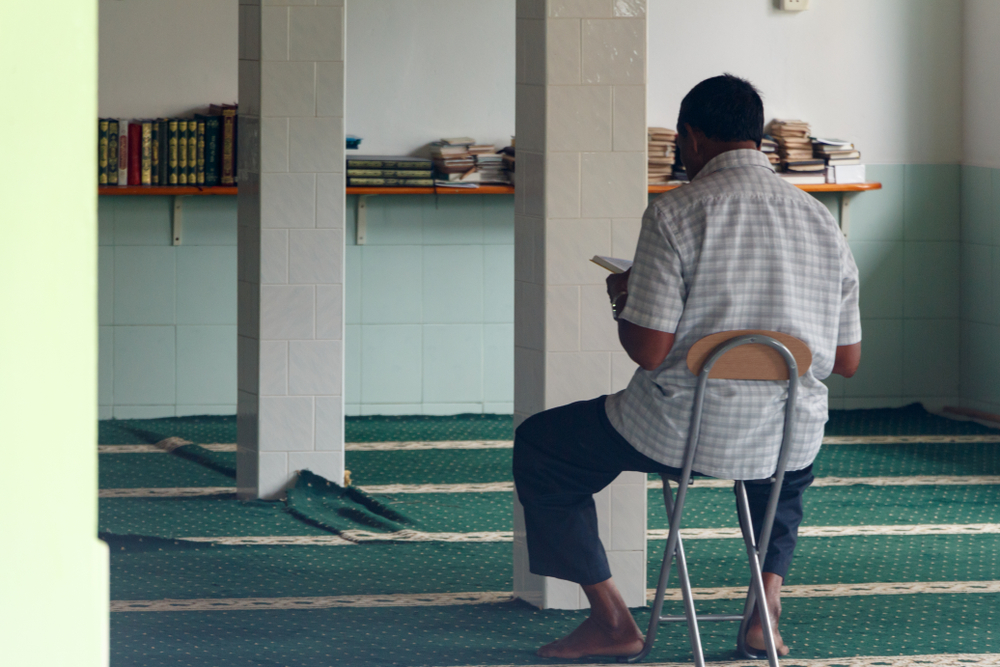Can I Pray on Chair If I Suffer from Leg injury?
Hanafi Fiqh
Answered by Shaykh Yusuf Weltch
Question
What is the Hanafi ruling on somebody like me who gets damage to my leg during prayer? How should I pray? If it is to pray on a chair or to pray standing up but then go on a chair for the parts I can’t do, can I lead a prayer while praying like this?
Answer
In the Name of Allah, the Most Merciful and Compassionate.
If sitting on the ground or prostrating on the ground causes you physical difficulty, especially long-term damage, pray sitting in a chair. [Tahtawi/Shurunbulali, Hashiyat Maraqi al-Falah]
Method of Praying on a Chair
Take the following steps to perform your prayers:
- You will start the prayer from a sitting position on a chair facing the Qibla. You will not start the prayer by standing, even if standing is not difficult for you. This is because standing is seen as a means to prostration on the ground. Being that you are not prostrating on the ground, standing is no longer an obligation. [Ibid.]
- You will remain sitting on the chair for the entire prayer. You will not stand for the beginning of each unit and then sit for the bowing/prostrations. [Ibid.]
- For your bowing, you will merely lower your head slightly and perform the remembrances of the bowing as normal [Ibid.]
- For your prostrations, you will also lower your head but further than that of the bowing. You are not required to tilt your back down for either the bowing or the prostration. It is sufficient that you bow your head down for both. Again the bowing of the head for the prostration must be lower than that of the bow (ruku’). [Ibid.]
Praying in Congregation
It is only permissible for a person who is sitting for the prayer to lead the prayer if they are making their prostration on the ground. This was done by the Prophet (may Allah bless him and give him peace) himself. [Ibid.]
You can, however, pray behind another person even though you are sitting on a chair. [Ibid.]
Related:
Can I Pray Laying Down Due to Sickness and Surgery? If So, How?
Hope this helps
Allah knows best
[Shaykh] Yusuf Weltch
Checked and Approved by Shaykh Faraz Rabbani
Shaykh Yusuf Weltch teaches Arabic, Islamic law, and spirituality. After accepting Islam in 2008, he completed four years at the Darul Uloom Seminary in New York, where he studied Arabic and the traditional sciences.
He then traveled to Tarim, Yemen, where he studied for three years in Dar al-Mustafa under some of the most outstanding scholars of our time, including Habib Umar Bin Hafiz, Habib Kadhim al-Saqqaf, and Shaykh Umar al-Khatib.
In Tarim, Shaykh Yusuf completed the memorization of the Quran and studied beliefs, legal methodology, hadith methodology, Quranic exegesis, Islamic history, and several texts on spirituality. He joined the SeekersGuidance faculty in the summer of 2019.
